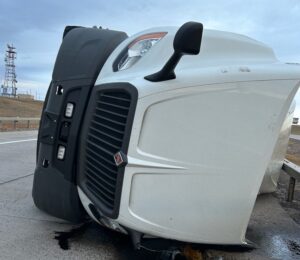WASHINGTON — Efforts to repeal the federal excise tax (FET) on heavy trucks and trailers were renewed July 22 with the introduction of the Modern, Clean, and Safe Trucks Act of 2021 by U.S. Sens. Ben Cardin (D-Md.) and Todd Young (R-Ind.).
The FET was created more than a century ago to help pay for World War I. In 1917, the FET was established at 3%; today it stands at 12%.
According to a joint statement released by Cardin and Young, the 12% FET is the highest percentage excise tax levied on any product, effectively discouraging the investment in new, cleaner and safer trucks and trailers. In addition, the statement noted that the FET “is an unpredictable and minimal source of revenue for the Highway Trust Fund.”
“Our tax policy is one of the most effective ways Congress can encourage cleaner and greener technology. The current federal excise tax has become a barrier to the progress,” Cardin said.
“It’s time to repeal this outdated and onerous tax on … truckers,” Young said. “Our bipartisan bill will open the floodgates to investment in safer and cleaner trucks and trailers that will benefit our economy and the environment.”
The legislation would repeal the FET on heavy-duty trucks, which currently adds approximately $22,000 to the cost of a new tractor-trailer, according to the American Trucking Associations (ATA), which spoke out in support of the measure.
“The federal excise tax on heavy trucks is a relic from the First World War that’s now serving to keep cleaner, safer trucks off of our nation’s roads today,” said Chris Spear, president and CEO of ATA. “By repealing this antiquated tax, Congress can deliver a win for the environment, highway safety, manufacturing jobs and supply-chain efficiency. We thank Sens. Young and Cardin for their bipartisan leadership in advancing a common-sense solution to the benefit of American truckers and the motoring public.”
Even though technological advances have made the latest tractor-trailers cleaner and safer than ever before, the surcharges often discourage motor carriers from modernizing their fleets. As a result, the average tractor-trailer on the road today is nearly 10 years old. A 2020 survey by ATA showed that 60% of fleets would be either “somewhat likely” or “very likely” to buy additional trucks and trailers beyond currently scheduled purchase if the FET were repealed.
According to the ATA, over the past two decades cleaner fuel and engines used in new trucks have combined to reduce nitrogen oxide emissions by 97% and particulate matter emissions by 98%. Since 2010, more fuel-efficient diesel trucks have saved 101 million barrels of crude oil and reduced CO2 emissions by 43 million tons. Life-saving, driver-assist safety technologies that weren’t widely available or effective a decade ago, such as automatic emergency braking, forward collision mitigation and electronic stability technology, are now offered in new models.
“Funding our national infrastructure need not come at the expense of highway safety or environmental health. Our industry will continue to advocate for equitable and sustainable user fees that align the goals of safer roads, cleaner air and a growing economy,” Spear said.
Steve Bassett, chairman of the American Truck Dealers Association, noted that the act would “result in cleaner, safer trucks on the road,” adding that repealing the FET is “crucial to help America modernize its aging truck fleet.”
Cummins Inc., a manufacturer of engines for trucks and other equipment, also signaled support for the bill.
“Cummins supports Sens. Young and Cardin’s effort to repeal the outdated and burdensome federal excise Tax on heavy duty trucks,” said Jennifer Rumsey, President and Chief Operating Officer, Cummins. “This tax penalizes those who want to adopt the cleanest, most advanced technologies to reduce emissions and improve safety, and repealing it will help ensure the most efficient technologies are being deployed.”
To read or download a PDF of the bill, click here.
The Trucker News Staff produces engaging content for not only TheTrucker.com, but also The Trucker Newspaper, which has been serving the trucking industry for more than 30 years. With a focus on drivers, the Trucker News Staff aims to provide relevant, objective content pertaining to the trucking segment of the transportation industry. The Trucker News Staff is based in Little Rock, Arkansas.














